 Article Contributors
Article Contributors 
Gambling in Canada
In 1985, the federal government made another decision to delegate full control over gambling to the individual provinces. Meaning that each province had control over gambling laws in its province. Unfortunately, the federal criminal code did not change and merely added more confusion to the issue.
In 2012, the first fully legal online casino was launched in British Columbia with casino games and poker offered to residents of British Columbia. Fast forward to today, there are over 80 land-based casinos in Canada offering slots and table games. As for online casinos, Canadians have access to thousands of casino sites with some even offering sports betting options.
What are the Gambling regulations for each Canadian Province?
There are a total of 10 ten provinces in Canada and each of these is responsible for its own set of regulations with respect to both land-based as well as online gambling. All casinos, bookmakers, lotteries and other gambling operators are required to follow the laws as specified by the governing province in which they are based. While laws are similar across most of the provinces, the types of gambling which are permitted as well as the legal age for gambling do vary slightly.
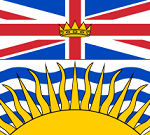 Gambling regulations in British Columbia
Gambling regulations in British Columbia
You must be at least 19 years to enter a casino or partake in gambling in British Columbia. Playing in casinos, buying lottery tickets, engaging in online gambling and betting on horse races are all legal under the laws of the province.
Play at casinos in British Columbia
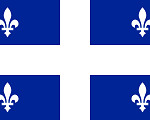 Gambling regulations in Quebec
Gambling regulations in Quebec
Quebec’s four land-based casinos are definitely a sight to behold, surrounded by stunning landscapes and decked out in extravagant finishings. Their selection of gaming choices are also quite extensive. If you’d rather get some gaming thrills from the comfort of your own home however, you’ll be happy to hear that online casino gambling also completely legal within this province.
Play at casinos in Quebec
 Gambling regulations in Ontario
Gambling regulations in Ontario
Ontario is currently the only province in Canada that issues licences to private online operators. A portion of gambling revenue is invested back into the community by the Ontario Lottery and Gaming Corporation (OLG) hence why casinos are considered as both commercial and charitable. Additionally, race tracks also house slot machines and other games, functioning as smaller casinos. Online gambling is also legal across ON.
Check out the best casinos in Ontario
 Gambling regulations in Alberta
Gambling regulations in Alberta
While gambling is legal in Alberta, most of the online casino sites are run by offshore gaming operators, some of which are regulated by international gaming watch dogs. The province has a total of 20 land-based casinos, 5 of which are First Nations operators while the other fifteen are non-reservation casinos. The legal here is only 18 years, the same as Manitoba and Quebec.
Play at casinos in Alberta
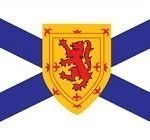 Gambling regulations in Nova Scotia
Gambling regulations in Nova Scotia
As the second smallest Canadian province, a surprisingly large proportion of the Nova Scotia population enjoy gambling activities, both land-based as well online. The legal age is 19 years old, like most other provinces, but the major drawback is that residents of the province only have access to ALC.ca websites, making for a rather limited variety of games.
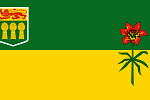 Gambling regulations in Saskatchewan
Gambling regulations in Saskatchewan
With a total of 9 land-based casinos, Saskatchewan has a large and varied array of slot machines, table games and poker. Officially, the provincial lottery is the only form of gambling that has been legalised in Saskatchewan. However, since regulations only relate to gambling services based and licensed within the province, there’s no law stopping gambling operators based elsewhere from targeting residents.
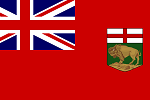 Gambling regulations in Manitoba
Gambling regulations in Manitoba
Manitoba boasts a large choice of online gambling sites, making it easy for residents to get their gaming thrills from both desktop and mobile devices. While the official laws on online gambling within the province remain within a grey area however, lotteries, bingo and land-based gambling activities are permitted.
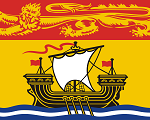 Gambling regulations in New Brunswick
Gambling regulations in New Brunswick
The New Brunswick Lotteries and Gaming Corporation (NBLGC) is the provincial authority responsible for overseeing most gambling activities. While there are only 2 land-based casinos, lotteries, harness racing and charitable gaming are quite common. Meanwhile, the status on online gaming is also allowed.
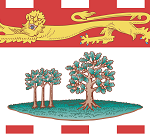 Gambling regulations in Prince Edward Island
Gambling regulations in Prince Edward Island
Canada’s smallest province happens to have one of the lowest gambling rates in the country. However, there is still a healthy variety of gambling activities available, whether it’s land-based casinos, sports betting as well as online operators. It only houses 2 physical betting venues though so it’s wiser to go online if you want more choice.
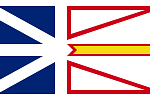 Gambling regulations in Newfoundland and Labrador
Gambling regulations in Newfoundland and Labrador
It’s pretty much slim pickings when it comes to land-based gambling in Newfoundland and Labrador, with just one casino and another smaller ‘racino’ – basically a racetrack with a handful of casino games. Gambling just doesn’t seem to appeal to residents as much as it does in other provinces. However, the good news is that online gambling has not been banned here, meaning that you can still access gambling products online.
Different rules for different provinces and territories
Provinces and territories are for most part self-governing, which is why they have been allowed to pass their own laws, rules and regulations when it comes to gambling. This means that the rules could be different depending on where you are in Canada.
Taxation is only really an issue if you are a professional gambler as outlined above, no matter where you are in the country. The difference though is that tax rates do in each of the ten provinces and three territories.
Quebec has the highest tax rates in Canada. The first $43,790 of a taxable income is subject to a 15% rate. The next $43,785 comes with an additional 20% rate, and if you earn an additional $18,980, that chunk of income will be taxed at 24%. Any income from $106,555 is taxed at 25.75%.
The lowest rates are in Nunavut where you only pay 4% on the first $45,414, 7% on the following $35,415, and 9% on the next $56,838. If you earn six figures, each amount of $147,667 will be taxed at 11.5%. All these rather confusing rates will apply to professional gamblers.

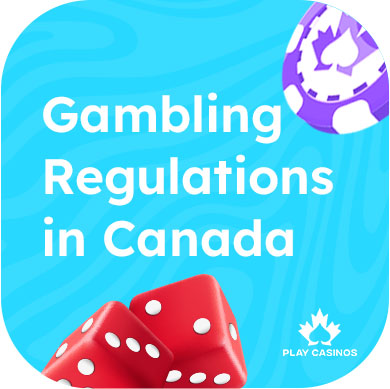
Key Authorities
As noted above, online gambling regulations in Canada are primarily governed at the provincial level. Each province has its own regulatory body responsible for overseeing gambling activities, including online gambling. Some key authorities include:
- British Columbia: British Columbia Lottery Corporation (BCLC)
- Alberta: Alberta Gaming, Liquor & Cannabis (AGLC)
- Ontario: Alcohol and Gaming Commission of Ontario (AGCO)
- Québec: Loto-Québec and Kahnawake Gaming Commission (KGC)
- New Brunswick, Nova Scotia, Prince Edward Island, Newfoundland and Labrador: Atlantic Lottery Corporation (ALC)
- Manitoba: Liquor, Gaming and Cannabis Authority of Manitoba
- Saskatchewan: Saskatchewan Liquor and Gaming Authority (SLGA)
These authorities regulate and enforce compliance with gambling laws within their respective jurisdictions. However, many online casinos operating in Canada are licensed by international regulatory bodies.
In provinces like Quebec, playing at an online casino with an international licence, such as those issued by recognized authorities like the Malta Gaming Authority or the UK Gambling Commission, is considered safe and legal. These licences ensure that the operator complies with stringent international standards for player protection and fair gaming practices.
In other provinces, such as Ontario, regulations require players to gamble only at online casinos that hold licences issued by the provincial authorities. Players need to verify the licensing status of online casinos based on the province from which they are playing to ensure compliance with local laws and regulations.
Who issues licences for online casinos?
Every legal casino, whether it’s land-based or online, needs to have a gambling licence in its possession. Gambling licences are issued by various independent licensing authorities, both local and international. These are federal governments that have enacted legislation that gives them the right to regulate and license online gambling operations. Trusted independent regulatory authorities can provide gambling licences.
The top licensing authorities are the Malta Gaming Authority, iGaming Ontario, the UK Gambling Commission, the Kahnawake Gambling Commission, the Gibraltar Gambling Commission, and Curacao eGaming.
MGA
The Malta Gaming Authority (MGA) is an independent regulatory body responsible for the governance of all gaming activity in sectors including remote gambling, casinos, lottery, sweepstakes, bingo, sports betting and games of skill in Malta.
iGaming Ontario
iGaming Ontario is the provincial regulatory body responsible for overseeing online gambling within the province. Established to regulate and license online gaming operators, iGaming Ontario aims to provide a safe and secure environment for players while generating revenue to support provincial initiatives. For a list of the top online casinos available in the province, visit our Ontario Casinos page.
UKGC
The UK Gambling Commission (UKGC) licenses and regulates businesses and those employed by casinos that provide gambling services in Great Britain. The Gambling Commission operates under the Gambling Act 2005. This was set up to regulate commercial gambling such as the National Lottery in Britain, and its main focus is to ensure gambling businesses are compliant with the Act’s standards. Prior to the UK Gambling Commission awarding a gambling licence, the following elements are considered; identity and ownership, integrity, competence, and criminality,
KGC
The Kahnawake Gaming Commission (KGC) has been continuously licensing and regulating online gaming since July 8, 1999, making it one of the oldest gambling commissions in the world. It licenses and regulates gaming and gaming-related activities conducted within and from the Mohawk Territory of Kahnawake, which is located 20 minutes from Montréal and occupies approximately 20 square miles.
- Yukon Gold
- Zodiac Casino
- Appolo Slots
- Golden Tiger Casino
- Villento Casino
- Grand Mondial Casino
Curacao
Curacao eGaming is recognized as one of the longest-standing and politically stable gaming licence providers. Its mission is to ensure legal conduct and the integrity of operators since 1996. A single licence covers all forms of interactive Gaming including games of skill, lottery, sports betting and casinos.
- Slototop Casino
- BetPat Casino
- Pokie Place Casino
Gibraltar
All gambling operations in Gibraltar need to be licensed under the 2005 Gambling Act. Remote Gambling licences, including for telephone and Internet betting, are issued by the Licensing Authority. The Gambling Commissioner ensures that licensees conduct their operations in accordance with their licences, maintaining Gibraltar’s good reputation as an iGaming jurisdiction.
- Betfair Casino
- William Hill Casino
- Paddy Power Casino
- Mansion Casino
Licensing Requirements
To operate online gambling services in Canada, operators must typically obtain a licence from the provincial regulatory body where they intend to offer services. Exceptionally, certain provinces, like Quebec, allow players to gamble at internationally licensed casinos. Regardless of where the licence stems from, the requirements are the same. The casino must:
- Demonstrate financial stability and integrity.
- Provide detailed business plans and operational procedures.
- Implement responsible gambling measures and player protection protocols.
- Comply with anti-money laundering regulations.
- Pay application and ongoing licensing fees.
Player Protection Measures
In Canada, player protection measures for online gambling are robust and include:
- Responsible Gambling Programs: Operators are required to offer responsible gambling tools, such as self-exclusion, deposit limits, and reality checks.
- Age Verification: Strict age verification processes and KYC checks must be in place to ensure that only individuals of legal age (usually 18 or 19 depending on the province) can participate in gambling activities.
- Support Services: Government-supported helplines and resources are available to assist problem gamblers and provide information on responsible gambling practices.
Our website actively promotes safe gaming through our Responsible Gambling Center. We offer many resources and support for players who may need assistance.
How much money is gambling worth in Canada?
Revenue from the gambling sector in Canada provides around $12.4 billion each year. This money is generated from land based casinos, lotteries, race tracks, and more. Here’s how this looks at a provincial level:
| Province | Gambling revenue per year | Number of Casinos | Number of Lottery Outlets |
| Atlantic Provinces (NB, PEI, NS, and NL) | $1.1 billion | 6 | 3,000 |
| British Columbia | $2.7 billion | 30 | 4,300 |
| Manitoba | $814 million | 6 | 913 |
| Ontario | $6.3 billion | 25 | 9,900 |
| Quebec | $2.7 billion | 6 | 8.500 |
| Saskatchewan | $773 million | 8 | 909 |
Gambling Taxes on players
If you are a professional gambler or looking to become one, and are asking can I be taxed on my gambling winnings? The short answer is no, but there are exceptions. You see, gambling is not considered a viable source of income, so the government tends to stay out of your business. After all, gambling isn’t exactly a career you can put down on your tax returns.
Still, there are professional gamblers out there who do earn most of their “income” from playing games of chance. These players may actually be expected to pay taxes on their prizes unless they can prove that they also have a reliable source of income that will provide a sustainable living.
How old do you have to be to gamble in Canada?
The legal age for gambling in Canada varies slightly according to the different provinces.
| Province | Legal Gambling Age |
| Alberta | 18 |
| British Columbia | 19 |
| Manitoba | 18 |
| New Brunswick | 19 |
| Newfoundland and Labrador | 19 |
| Nova Scotia | 19 |
| Ontario | 19 |
| Prince Edward Island | 19 |
| Quebec | 18 |
| Saskatchewan | 19 |
What are the gambling regulations about advertising in Canada?
When it comes to showing advertising related to gambling, Canadian law is pretty clear cut. The Criminal Code prohibits the advertisement of gambling except where it is operated by a provincial government or charitable organizations.
For example
- All advertising shown in Canada must comply and adhere to the federal Competition Act and individual provincial consumer protection laws.
- Where the advertisement of gambling is allowed, protections must be in place to discourage minors from gambling. Responsible gaming messages must also be featured
- Gambling advertisements must not encourage reckless behaviour or spending beyond ones financial means.
- Advertisers must also not imply or infer that winning is a probable outcome of gambling
Failure to comply with these advertising measures can result in federal prosecutions and in some cases custodial sentences.
How to protect your winnings in Canada
For now, only professional gamblers are taxed and to be considered a pro pretty much all of your income must come from gambling. This is rather difficult to achieve when you’re playing games of chance in any casino.
The best way to make sure that your winnings are exempt of taxes is to have another job or career with a taxable income. Keep in mind that laws and regulations can change over time in each province and territory. The best thing to do is to make sure you have either an accountant or a tax lawyer just in case Canada Revenue Agency come knocking on your door.
Also, make sure you read up on the specific tax rates where you live so you don’t get hit with a nasty surprise if you happen to hit that massive million dollar jackpot.
Recent Changes and Updates
Many developments in Canada reflect ongoing efforts to modernize and regulate the online gambling landscape. Some of the recent legal changes impacting online gambling in Canada include:
- Bill C-218: Legalization of single-event sports betting, allowing provinces to regulate and offer this form of gambling.
- Ontario’s iGaming Market Regulation: Ontario’s move towards a regulated online gambling market, including the launch of Ontario Gaming (OLG) online.
- Updates in Québec: Québec’s consideration of expanding online gambling offerings under Loto-Québec.
FAQs About Gambling in Canada
Is online gambling legal in Canada?
Online gambling is legal in Canada, but regulation and oversight vary by province. Each province has its own laws and regulatory bodies governing gambling activities. It is essential to verify the legality and licensing of any online gambling operator based on the province from which you are playing.
Are Casino winnings in Canada Taxable?
The straight answer to this question is “No”, assuming that you are not a professional player. But if you are, then that’s a different story.
Are poker winnings taxable in Canada?
When it comes to poker winnings, things are a little more complex. Canadian law dictates that ‘Poker winnings are subject to tax if they are “income from a business.”‘ This means that eventually, winning players might be subjected to tax consequences especially if they appear to be “make a living” from these winnings or if they increase their frequency of play.
So, then this begs the question when does playing winning poker amount to a business?
Well, according to TheGlobeAndMail,
“The Income Tax Act doesn’t provide an answer. And there’s no reported case explaining precisely when the net winnings of individual poker players are subject to income tax. In the entire body of reported Canadian case law on the related question of the taxation of gambling winnings more generally, there are only a few cases where individual gamblers have been found to be in the business of gambling. The upshot for poker players is that it’s probably in only unusually active, skilful and financially successful circumstances that they will face Canadian income tax liability on their winnings. The central legal difficulty arises in determining at which point a taxpayer crosses the line from playing poker casually to playing professionally or as a business.”
If I win the lottery, will my winnings be taxed?
When it comes to lottery winnings, the idea is fairly similar, but the conditions change due to the nature of the game. According to the Canada Revenue Agency’s windfall rules, if you win money from a lottery, you are not required to report the winnings nor pay tax on those funds. In fact, the CRA has not instituted a cap or limit on these winnings. The only thing to look out for though is that any interest earned from the winnings will be subject to taxation.
The exception to the rule in the case of lottery winnings is if your winnings are considered to be a part of your income. For instance, if your job is selling lottery tickets and you earn a commission for selling winning tickets, you must report your winnings as income.
The bottom line is unless you are a professional poker player or an employee selling lottery tickets, you can rest assured that no tax consequences will be involved.
Who’s responsibility is to stop underage gambling in Canada?
Online operators are obliged to implement several measures across their site to ensure that minors are unable to access any of the services. These policies are in line with responsible gaming initiatives which all licensed and regulated operators must promote to protect customers. A detailed identity verification process is part of these measures to prevent underage gambling.
However, it also falls under the responsibility of the legal guardian to take the necessary precautions to ensure minors have no way of accessing such services. Making use of child-protection software, such as Cyber Patrol, Net Nanny or CYBERsitter is an effective way to block gambling sites from minors.
What terms need to be met to get a gambling licence in Canada?
- Audited accounts
- A detailed description of the business
- List of casino games and gambling services provided
- Verified ID
- Background check
Who Licenses Lotteries in Canada?
Since playing the lottery is a form of gambling, the running and licensing of lotteries in Canada is treated as seriously as that of casinos.
In 1976 The Interprovincial Lottery Corporation (ILC) was founded to operate and oversee lottery games. It is owned jointly by the five provincial lottery commissions: Atlantic Lottery Corporation (serving New Foundland and Labrador, PEI, New Brunswick, and Nova Scotia. British Columbia Lottery Corporation, Ontario Lottery and Gaming Corporation, Loto-Québec, and the Western Canada Lottery Corporation.
Is sports betting legal in Canada?
Legal online sports betting has been available in Canada since 1985, with each province able to regulate sports betting inside its borders. On April 4 2022, Ontario became the first province to host a competitive sports betting market.








 Fact Checker
Fact Checker 

